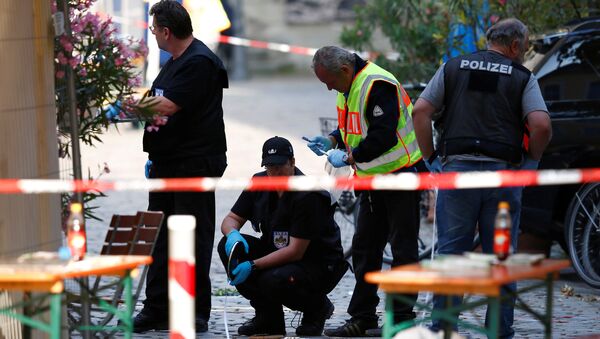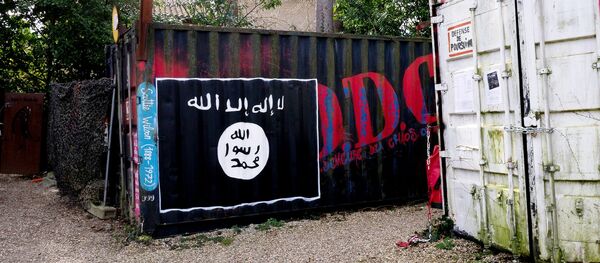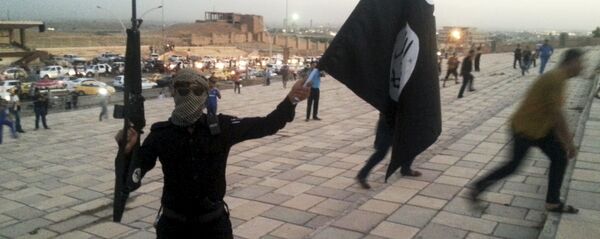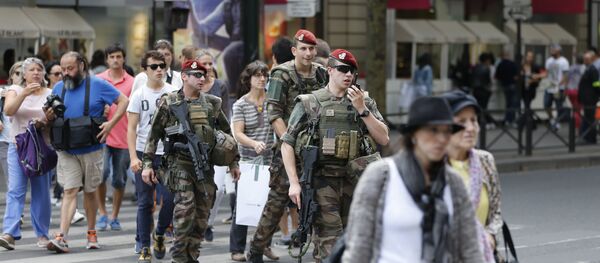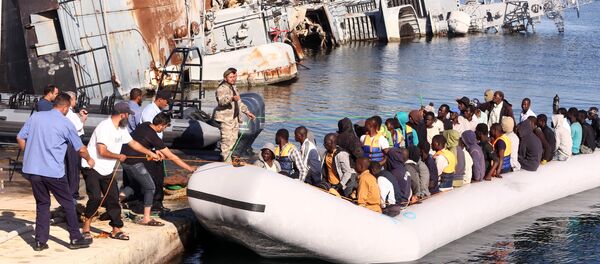The European Police Office (Europol) has admitted that the recent terrorist incidents which took place in the United States, France and Germany "highlight the operational difficulties in detecting and disrupting lone actor attacks."
In its recent EU Terrorism Situation and Trend Report (TE-SAT) 2016 Europol underscored that lone actor attacks remain "a favored tactic" by Daesh (ISIS/ISIL) and al-Qaeda affiliates.
"Both the al-Qaeda network and IS [Daesh] have called upon Muslims in western countries to perpetrate lone actor attacks in their countries of residence," the report points out.
The report specifies, however, that according to the information available at Europol, none of the latest attacks seem to "have been planned, logistically supported, or executed directly" by Daesh.
Still, some US officials believe that the recent solo terror acts were orchestrated by the infamous terrorist organization.
"We know there is a command and control structure behind some of these attacks. Islamic State [Daesh] has filled up the pipeline with militants in Europe," an unnamed US official told the Wall Street Journal.
On the other hand, the upsurge in terrorist activity in Europe could be a response to the pressure exerted on the terrorist organization in Syria and Iraq by Russia and the US-led coalition.
Both European and American intelligence experts believe that jihadists will increase their terrorist activity, diversifying from large scale attacks previously carried out in Paris and Nice, to smaller "lone wolf" assaults like those launched in Würzburg, Ansbach and Normandy.
Experts also call attention to the fact that in contrast to Paris and Brussels attacks, recent ones seem to be less sophisticated and less prepared: the Nice attacker used a rented truck; in Ansbach the culprit used a self-made bomb; in Würzburg the terrorist attacked his victims with an axe and knife.
"Renting a lorry is not illegal, walking around with a knife is not illegal, so by doing so you make your attackers very difficult to attack and be detected," he told Radio Sputnik.
For his part, Colonel Richard Kemp, former chair of the UK government's Cobra crisis response group, told Sputnik that the recent lone actor attacks in Europe are likely to be followed by more "copycat" assaults.
"We shouldn't think that this is now the new form of Islamic State [Daesh] attack, the reality is that they will continue to attack a range of different targets, and probably in the future this type of target because it does gain them what they want, which is both butchery and public attention," Kemp noted.
"Counter-terrorism officials and experts are alarmed by Al Qaeda's switch from spectacular attacks that require years of planning to smaller, more numerous strikes on softer targets that can be carried out swiftly with little money or outside help," the Los Angeles Times reported in 2004.
The strategy was dubbed a "war of a thousand cuts," Daveed Gartenstein-Ross narrated in his article for the Atlantic in May, 2011, explaining that "the gist of this strategy has been to perpetrate 'smaller, but more frequent' attacks."
The other distinguishing feature of this strategy was that al-Qaeda's veterans and followers demonstrated a high level of autonomy, launching attacks "with little or no direct contact with the leaders."
"There is a type of diffuse jihadism, which on the one hand consists of loosely structured small cells and on the other hand ideology," Gijs de Vries, then counter-terrorism coordinator for the European Union, remarked in 2004 as quoted by the Los Angeles Times.
Given the fact that Daesh originated from al-Qaeda in Iraq (AQI) it is hardly surprising that it has recently adopted Osama Bin Laden's "war of a thousand cuts" strategy.
